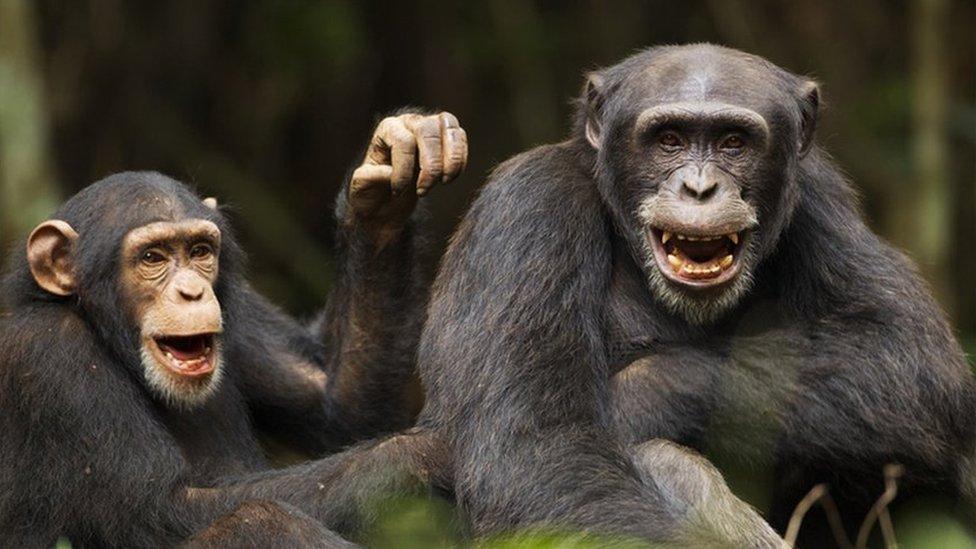Chimps 'can recognise friends' they haven't seen in years, scientists say
- Published
- comments

Elephants never forget, as the famous saying goes - but it turns out they might not be the only animals with an impressive memory.
Scientists say that certain great apes can recognise family and friends they haven't seen in decades too.
They found that chimpanzees and bonobos, that are chimp like but smaller and have longer limbs, can still remember faces after more than 25 years.
Experts say the findings can help explain how humans developed rich, long-term memories.
What did scientists find?
The study was lead by researchers from the University of California, Berkeley in America who say the findings show that chimpanzees and bonobos have the longest-lasting memory recorded in any animals besides humans.
The team used infrared eye-tracking cameras to record where the great apes looked when they were shown side-by-side images of other chimpanzees or bonobos.
One picture was of a stranger, while the other was of a bonobo or chimp they had lived with for at least one year in the past.
Experts found their eyes were drawn to and lingered much longer on pictures of old friends they had previously lived with, which suggests they might be able to recognise them.
Scientists also say the findings support the theory that long-term memory in humans, chimpanzees and bonobos likely comes from our shared common ancestor that lived between 6 million and 9 million years ago.
Laura Simone Lewis, lead author of the study, said: "This study is showing us not how different we are from other apes, but how similar we are to them and how similar they are to us."
